Leadership Styles, Ethics, and Their Impact on Organizational Culture
VerifiedAdded on 2023/06/14
|5
|805
|232
Essay
AI Summary
This essay examines the interconnectedness of leadership traits, organizational culture, and the crucial role of ethics within organizations. It highlights essential leadership attributes such as empathy, confidence, honesty, and optimism, which are vital for motivating employees and fostering a positive work environment. The essay also explores how organizational culture, defined by shared beliefs and values, shapes employee behavior, promotes collaboration, and enhances organizational identity. Furthermore, it emphasizes the significance of ethics in fostering teamwork, protecting organizational assets, and promoting ethical decision-making. Different leadership styles, including transactional leadership, are discussed, with real-world examples provided. The essay concludes that effective leadership, a strong organizational culture, and a commitment to ethical practices are essential for organizational success. Desklib provides access to this essay and many other resources for students.
1 out of 5
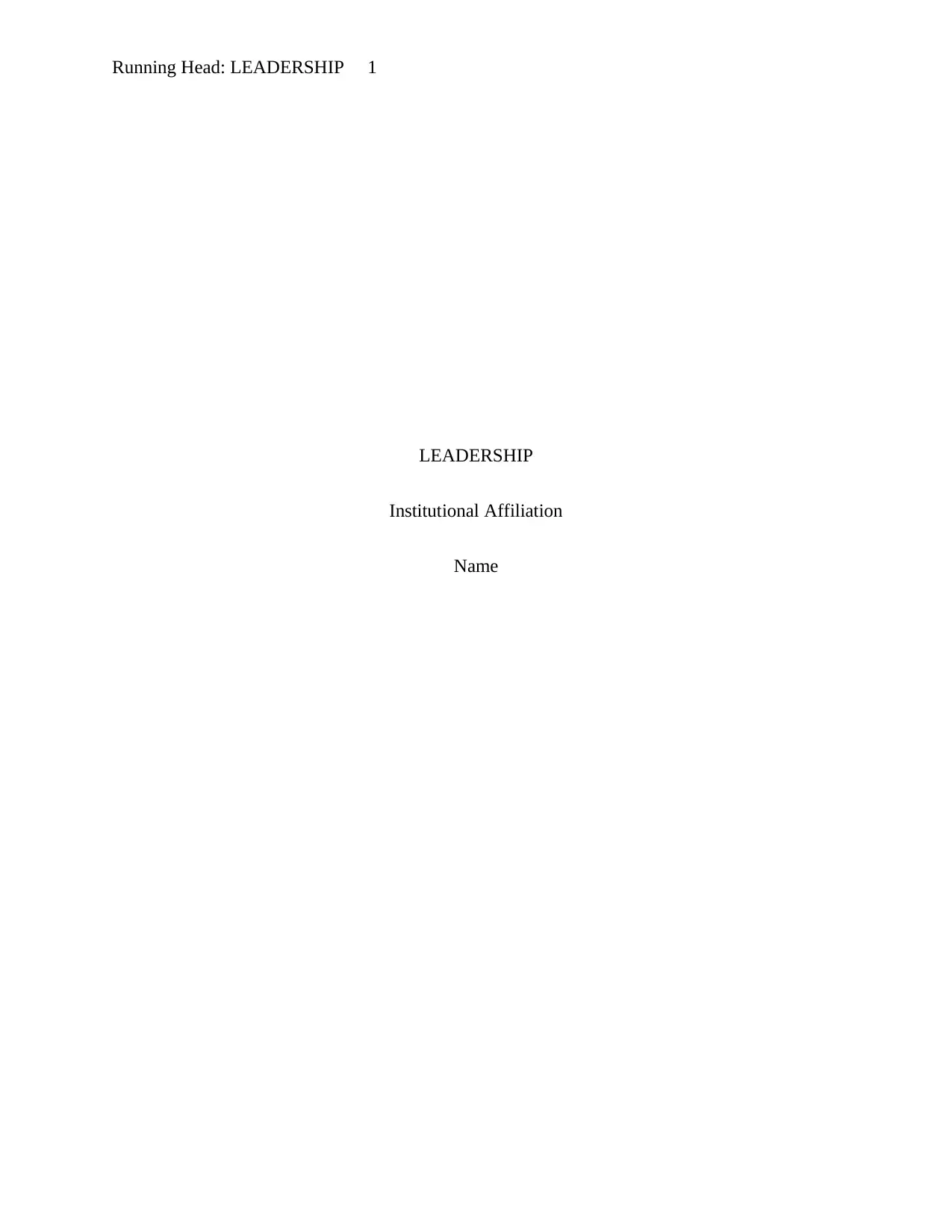
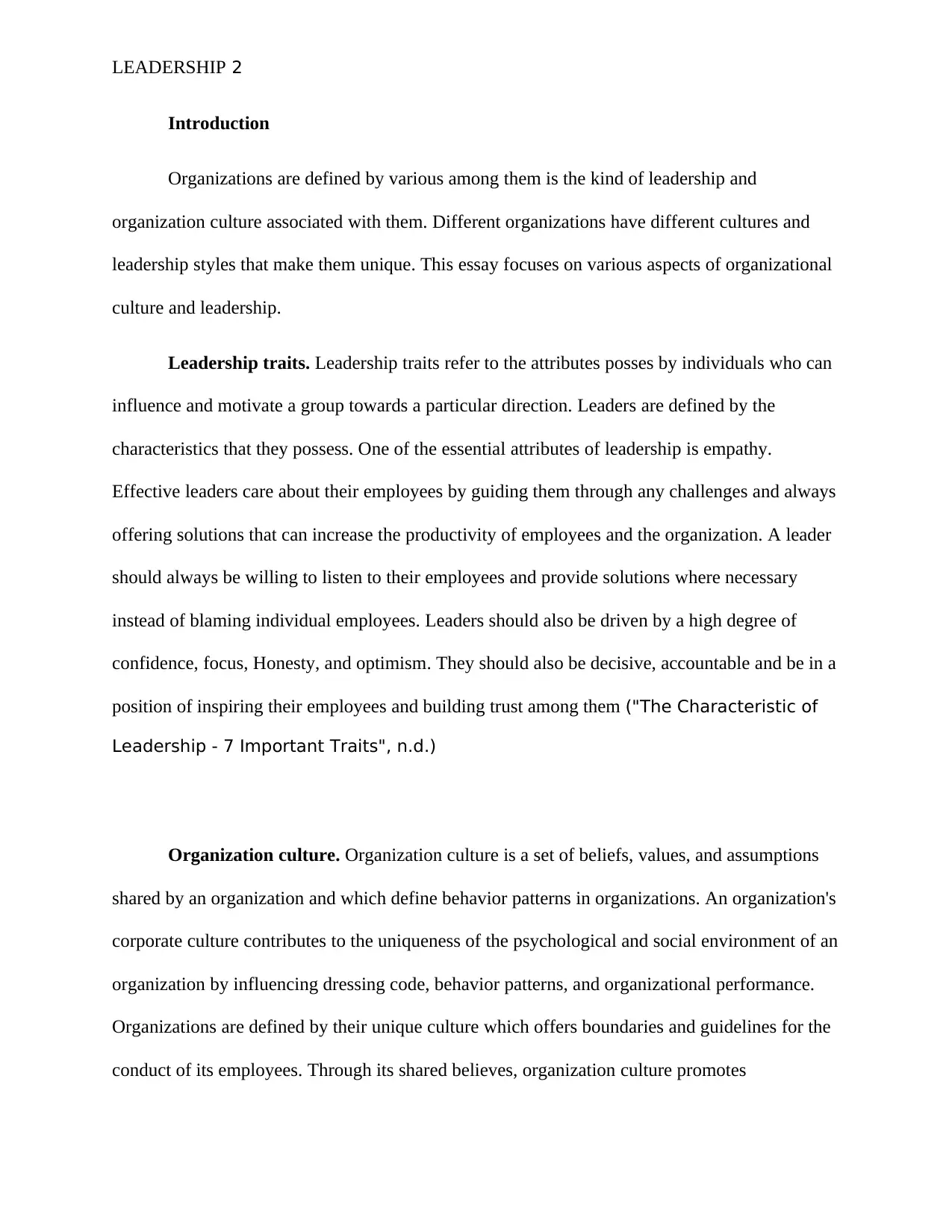
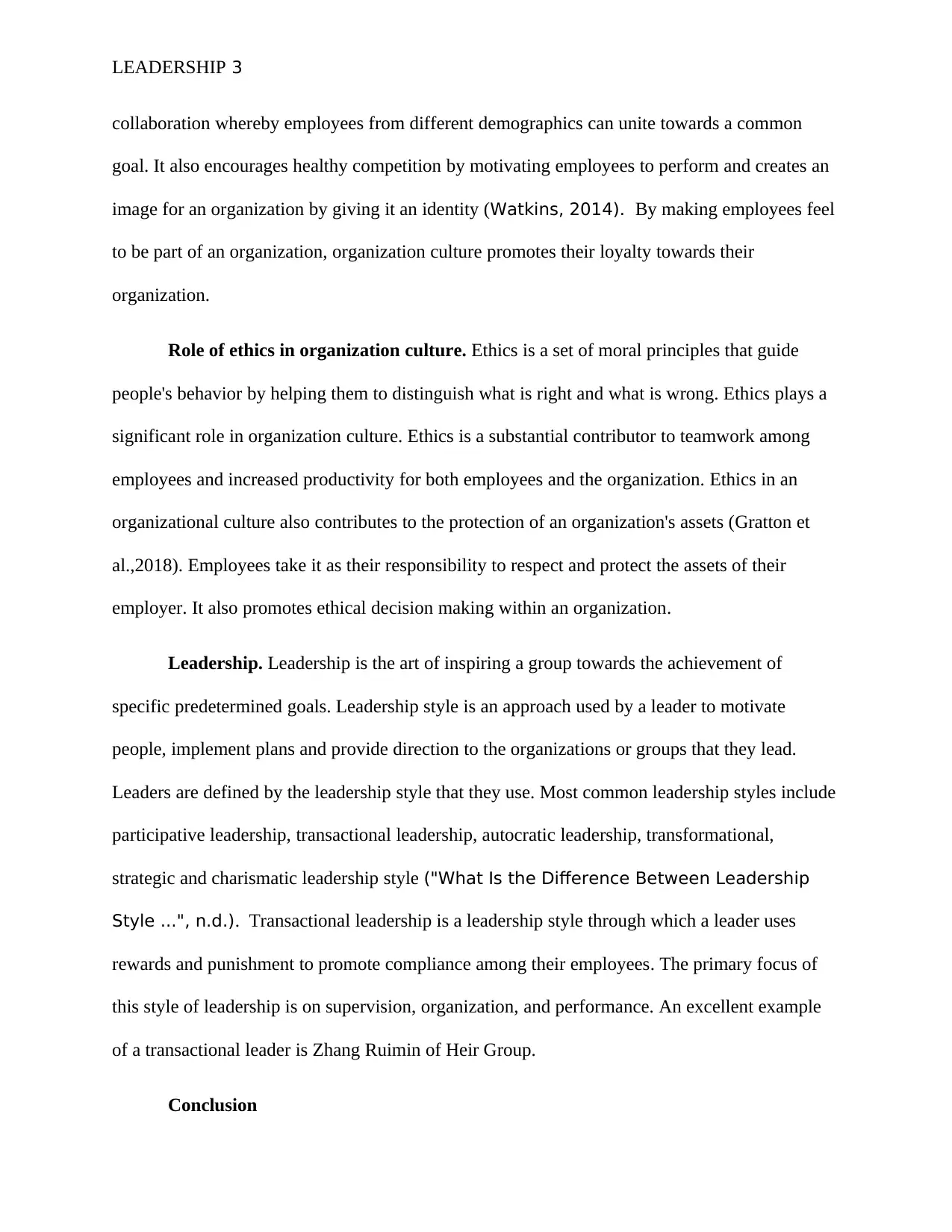

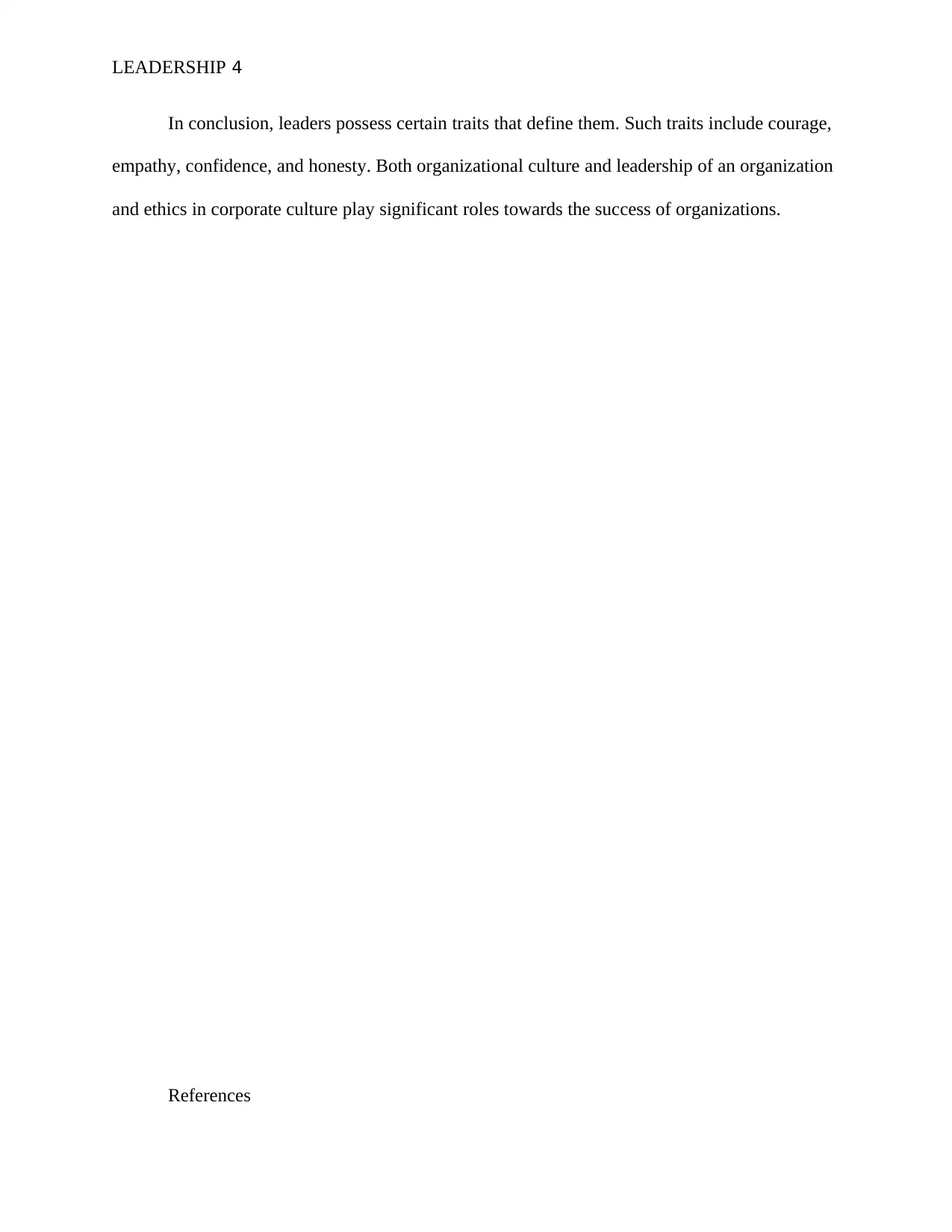
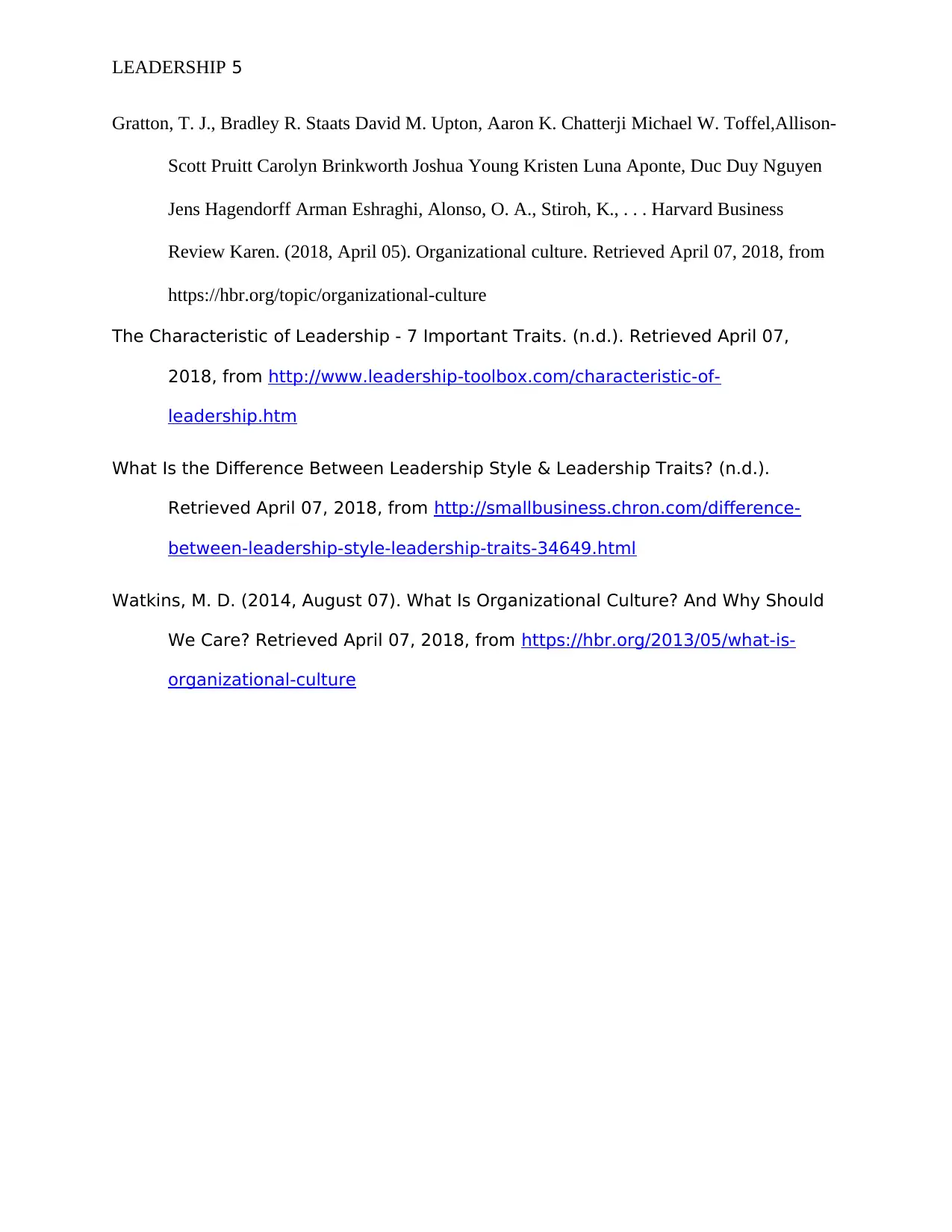






![[object Object]](/_next/static/media/star-bottom.7253800d.svg)